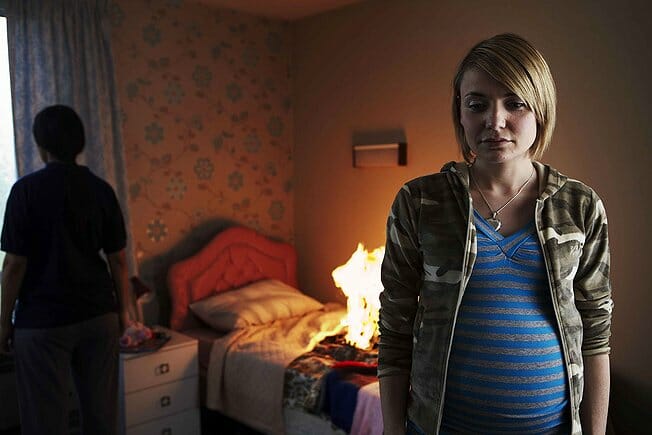The Arbor

Director: Clio Barnard
Cinematographer: Ole Bratt Birkeland
Stars: Kate Rutter, Manjinder Virk, Christine Bottomley, George Costigan
Studio/Running Time: Strand Releasing, 94 min.
In 1988 The Thin Blue Line caused an uproar in the documentary community through its recreation of scenes, breaking dramatically with the prevalent direct cinema/cinéma vérité tradition that many thought of as the only type of true documentary. During the intervening years this device has become accepted as just one more way of telling a true story, but that doesn’t make The Arbor’s evolution of this concept any less interesting. Drawing from “verbatim theater,” in which a play is constructed out of recorded dialogue, The Arbor primarily consists of actors lip-syncing to recorded interviews, speaking directly to the camera in circumstances that never existed so as to heighten the dramatic effect. It’s done so seamlessly that were the film not to say what’s happening, it would be assumed that these people miming dialogue were in fact speaking.
-

-

-

-

-

-

-

-

-

-

-

-

-

-

-

-

-

-

-

-

-

-

-

-

-

-

-

-

-

-

-

-

-

-

-

-

-

-

-

-








































